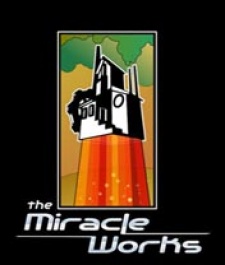There aren't a lot of game development studios in New Zealand but now there's one more following the founding of the Wellington-based The Miracleworks.
As is often the way, its principals have previous experience of the industry, which they are preparing to use with their debut iPhone game.
Significantly, it's a baby simulator called Miracle Baby.
Indeed, one area The Miracleworks will specifically be targetting is female oriented games.
We dropped a line to CEO Jeremy Kelsey to find out why he and his fellow co-founders had decided on this approach.
Pocket Gamer: Can you give us some background on why you set up The Miracleworks?
Jeremy Kelsey: I've been working in the game industry since 2000, although I didn't really go pro until 2002. For most of my career I've been working on Massively Multiplayer Online Games (MMOGs), many of which have been cancelled. It's been frustrating to work on games that require grueling hours and a ton of innovative ideas to make shine, yet vanish in a cloud of smoke.
During this time, I've been closely watching the casual and mobile spaces, and I've long been envious of their shorter development cycles.
Duane Mathes, our technical director, and I have been talking about running a studio for a number of years. We worked together on one of the previous, unreleased MMOGs and we both appreciate each other's skill sets, which complement each other well. Like many of my other former industry peers, he recognises that I'm able to think outside the box and create unique ideas. While, in turn, I recognise his immense and varied talents, and his ability to pick up new ones at an exceedingly rapid rate.
As soon as we seriously looked into setting up a studio, we had a flood of ideas that seemed compelling. Of course the iPhone is approachable, so that is part of the reason we chose the platform. I had also been doing some dabbling into iPhone development in my spare time.
But the biggest reason was that a number of our ideas, including Miracle Baby, seemed a perfect fit for the platform. In fact, we've thought about whether Miracle Baby would be possible on another platform and we don't think it would easily work. Not many games for the iPhone take advantage of the hardware features in the same way Nintendo's games take advantage of its hardware's features.
Why do you think there's a market gap in terms of female gamers?
We originally started on the development of a much more male-oriented science fiction game. Then, only a couple of months into production, we noticed a flood of similar games. As I had been independently working on Miracle Baby before we started the company, we decided to have a brainstorming session to discuss whether we should focus on this title for our debut.
Formerly I worked at the same company that makes Webkinz, and I've seen how strong the female market can be in gaming. I've also worked on another MMOG in the past that was female-oriented, headed by a very large publisher. As its lead designer, I was privy to a great deal of marketing and sales data that suggested female gamers have a lot of purchasing power, yet were underrepresented by games in development.
The few companies that did focus on female-oriented games that were not trite, stereotypical and/or poorly developed, such as Nintendo, Big Fish and EA, were awarded with a loyal customer fanbase of mostly female gamers.
Miracle Baby seems like a game specifically for teenaged girls, which isn't a market thought to be large on the App Store?
As I mentioned, I've been fortunate to be privy to some good marketing data that indicates female gamers are a significant market force, which is partially why we've seen casual gaming on the rise.
Also I've seen some research that claims that over 60 percent of iPhone users are female. That's only iPhone users. Apple doesn't release data on the iPod touch, but from firsthand experience, I've seen many girls, including teenagers, with iPhones and iPod touches. And many people I know have told me the same.
Of course this isn't scientific, but my gut feeling is there's a strong market. Sure, it isn't a market that's been thought to be large on the App Store, which maybe what we need to differentiate ourselves from the competition.
What's your view on the price of iPhone games?
We think the price of iPhone games is really the result of a poor-man's marketing strategy. Most small developers don't have the resources to make a game and also give it the marketing attention it deserves.
This is why we are first seeking to align ourselves with a publisher for our first game and if that doesn't happen, we will look at implementing a social networking, as well as a viral marketing, campaign in non-traditional advertising spaces.
Posting this game on traditional gaming blogs and sites won't be our primary strategy, as the readership is mostly male.
Will you be releasing free games with in-app purchases and/or ad-funded games?
We would love to implement in-game purchases for our game. It's the perfect vehicle for it.
But we were at the very end of development when it was announced, and we're still assessing whether to push back our release date. Hopefully we'll enter successful negotiations with a publisher and get their feedback.
Thanks to Jeremy for his time.
You can find out more about The Miraclesworks via its website.
New Zealand studio The Miracleworks on filling the female iPhone gaming gap
Huge potential but currently under represented





















